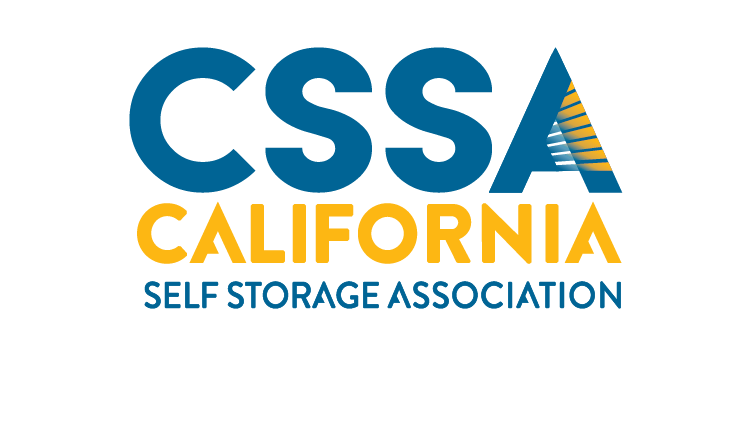Moratoriums on Commercial Late Fees, Liens, and Evictions
As the coronavirus (Covid 19) spreads throughout the United States, several states and localities have enacted restrictions on foreclosures and evictions. Many of these orders that have been issued to date exclusively cover residential evictions and foreclosures. However, as the situation evolves, more states are expanding those restrictions to cover commercial evictions as well. Some of the commercial eviction or foreclosure moratoriums may prevent operators from conducting self storage liens sales, performing overlocks, or imposing late fees.
Although self storage lien sales are not evictions in the usual sense of that word, the SSA urges all operators to exercise great caution if they operate in an area covered by a moratorium on commercial or non-residential evictions or foreclosures.
First, self storage lien sales are a form of non-judicial foreclosure. Therefore, an order that imposes a foreclosure moratorium may apply to self storage lien sales. Second, the overall intent of many government restrictions at this time is to keep people at home as much as possible. It arguably frustrates the intent of the orders if a landlord creates a situation that forces a tenant to leave home for a non-essential purpose. Third, the orders are often hastily drafted and vague and do not define the term “eviction”, “foreclosure”, or other key terms in the orders. The overall intent, coupled with the vague wording, indicates that the term “eviction” or “foreclosure” is meant to cover any unilateral action by an operator that terminates a rental agreement. This certainly covers lien sales, even if the primary purpose of a lien sale is to recover unpaid rents.
The volume of new orders issued daily makes it difficult to provide a comprehensive list of jurisdictions, especially local governments, that have enacted eviction or foreclosure moratoriums. Additionally, in the interest of space, we did not include local orders that affect only residential evictions or lawsuits filed to evict a tenant.
California
- Governor issued an order, issuing a statewide moratorium on residential evictions.
- Governor also issued an executive order that authorizes local governments to pause evictions for renters. The protection is in effect through May 31, 2020. Tenants are still obligated to pay rent, and landlords can still recover rent that is due. The order only applies to the imposition of limitations on evictions when the basis for the eviction is nonpayment of rent, or a foreclosure, arising out of a substantial decrease in household or business income (including, but not limited to, a substantial decrease in household income caused by layoffs or a reduction in the number of compensated hours of work, or a substantial decrease in business income caused by a reduction in opening hours or consumer demand), or substantial out-of-pocket medical expenses; and the decrease in household or business income or the out-of-pocket medical expenses was caused by the COVID-19 pandemic, or by any local, state, or federal government response to COVID-19, and is documented.
- Evictions and foreclosures are suspended only as set forth by local governments. Many localities in California have imposed such restrictions on commercial leases. Additionally, many have restricted the ability to impose any late fees. A complete list of California orders is forthcoming.
Late fees - If it does not violate your local order (see below) late fees may continue to be assessed as part of your normal business practice. However several operators have reported that they are assessing the late fee but giving their tenants a grace period before it is due.
Lockouts, liens, auctions - We have heard form several operators that have put a halt on lockouts and/or lien notices/auctions for the month of April, yet others are still pressing forward. If you decide to move forward with auctions, you will need to hold them online as in-person auctions violate the non-gather order for the state of California.
Check your local order in place - Whether or not an operator is permitted to assess late fees, liens, lockouts or auctions depends on the orders in place in the city/county where your facility is located within the state of California. You must review your local orders in place, and then make a business decision depending on what is allowed. We also suggest you consult your attorney before making a decision.
Here is one link that might help you find your local order: https://www.covid19.ca.gov/state-local-resources/#top
Consider the optics - Before making a final determination, you might also want to consider the optics or how this looks to your community. You may want to consider some leniency if other businesses in your area are delaying payments to give those negatively affected by these restrictions, including being furloughed or loosing their job.
Additional advice is given by Joe Doherty and Daniel Bryant from SSA:
"Although self storage lien sales are not evictions in the usual sense of that word, the SSA urges all operators to exercise great caution if they operate in an area covered by a moratorium on commercial or non-residential evictions or foreclosures.
First, self storage lien sales are a form of non-judicial foreclosure. Therefore, an order that imposes a foreclosure moratorium may apply to self storage lien sales. Second, the overall intent of many government restrictions at this time is to keep people at home as much as possible. It arguably frustrates the intent of the orders if a landlord creates a situation that forces a tenant to leave home for a non-essential purpose. Third, the orders are often hastily drafted and vague and do not define the term “eviction”, “foreclosure”, or other key terms in the orders. The overall intent, coupled with the vague wording, indicates that the term “eviction” or “foreclosure” is meant to cover any unilateral action by an operator that terminates a rental agreement. This certainly covers lien sales, even if the primary purpose of a lien sale is to recover unpaid rents."
